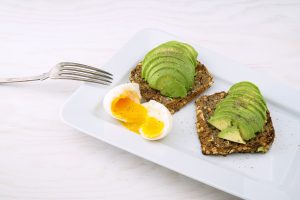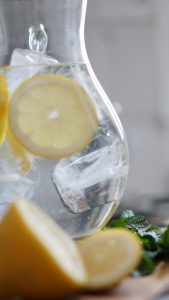Sugary drinks & the increased risk of cancer
Research Review
“Did you know a glass of pure fruit juice a day causes cancer?” This was a statement expressed to me yesterday off the back of a newspaper article. Umm, I thought – I’m not exactly sure that should be the take-home message. Households everywhere will be pouring their orange juice down the drain for fear of illness! Looking at the source of the research, (a study published in The BMJ), the objective was to assess the associations between the consumption of sugary drinks, artificially sweetened beverages and the risk of cancer. The study is observational so researchers cannot categorically say that sugar is a cause of cancer. The authors state that there are possible biological mechanisms, such as the effect of sugar on the internal fat stored around vital organs (liver and pancreas), blood sugar levels and inflammation, all of which are linked to increased cancer risk.
One of the overall conclusions of the study was that the consumption of sugary drinks was positively associated with the risk of overall cancer and breast cancer. 100% fruit juices were associated with this conclusion – there’s your sensational headline ready to be misinterpreted.

An important take-home message, is that pure fruit juices contain important vitamins and fibre so I would always rather a client drinks a glass of orange juice rather than a fizzy drink (sugar free or not sugar free), but the juice should still be consumed with a balanced meal to avoid overloading your body with sugar getting that inevitable sugar spike, and should be enjoyed a couple of times a week rather than every day. As with anything we eat and drink, intake of sugar should be monitored within our diets so we are not consuming too much.
This study also lays out other research which shows that sugary drinks are associated with an increased risk of weight gain, being overweight, or obesity; a greater incidence of type 2 diabetes and a higher risk of hypertension (high blood pressure).
In today’s western culture some do not see the significance of a drink (other than water) in their daily consumption of sugar or calories. Looking at sugar-free options, they have no sugar or calories but they do contain non-nutritional sweeteners. The study shows there was no association between non-sugar drinks and cancer, however, this finding needs to be taken ‘with a grain of sugar’. Let’s not celebrate and have a coke zero. The study states that the links between cancer and sugary drinks may be the chemical compounds in them, such as 4-methylimidazole which is in drinks containing caramel colourings (defined as possibly carcinogenic to humans by the International Agency for Research on Cancer, IARC), pesticides in fruit juices, or artificial sweeteners such as aspartame, all might play a role in carcinogenesis. A non-sugar fizzy drink contains; sweeteners (aspartame, acesulfame K), natural flavourings including caffeine, acidity regulator (sodium citrate) and phenylalanine and caramel E150d. The artificial sweetener Acesulfame potassium (also known as E950, acesulfame K, or ace K) is around 200 times sweeter than sugar and is used to give food and drinks a sweet taste without adding calories. In tests, acesulfame K has been shown to actually increase the amount of sugar absorbed by gut cells.
It’s hard to accept that something advertised and sold to us so freely can be so detrimental to health. Nutritional science is having its day and we will only learn more as the studies become more robust and gain support. We know the dangers of smoking, alcohol and drugs and we make our choices. My job is not to judge and force my opinions, but to inform people of what they are consuming and to help and guide decisions that enable healthier lifestyles. Admittedly I rolled my eye at the headline (each week we get a sensational diet or nutrition spin), but the message is an important one that should get us thinking about what we put into our bodies.

Tip: Need that fizzy fix?
Try fizzy water and infuse with lemon, lime and ice – add mint for an extra burst of refreshment.
Infused waters are a great way to promote increased water consumption. Research has also shown that drinking water with a meal can help to stop overeating and water infused with lime may aid digestion.